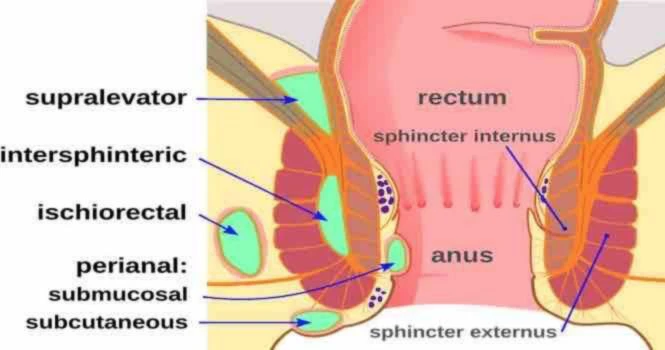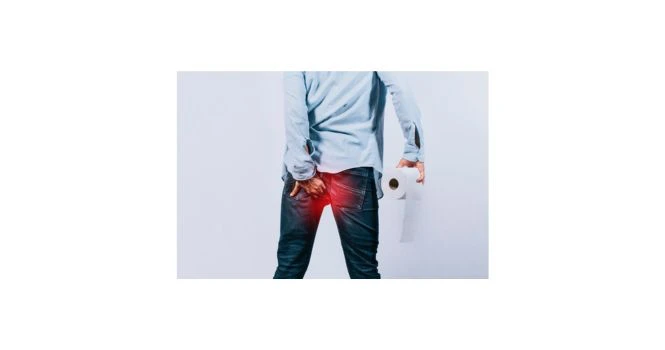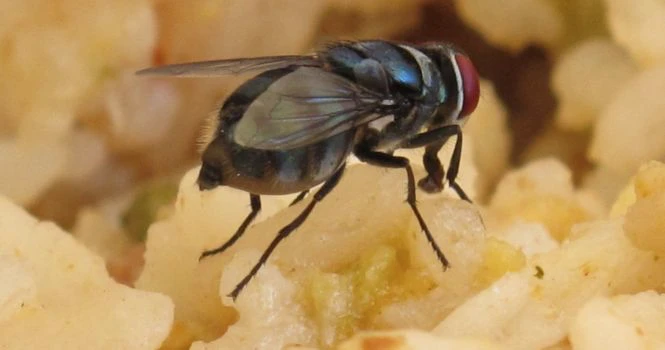Best Tablet for Piles Pain
What is Piles?
Piles, also known as hemorrhoids, are swollen veins in the lower part of the rectum and anus. These veins can become inflamed, causing discomfort, itching, pain, and sometimes bleeding during bowel movements.
Piles can be
- Internal (inside the rectum) or
- External (under the skin around the anus)
They are a common condition and can be caused by factors such as straining during bowel movements, constipation, obesity, pregnancy, and aging.
Piles in different languages,
- Hindi: बवासीर (Bawasir)
- Bengali: অর্শ (Arśa)
- Telugu: మొక్కు (Mokku)
- Tamil: மூல நோய் (Mūla nōy)
- Kannada: ಮೂಲವ್ಯಾಧಿ (Mūlav’yādhi)
- Malayalam: പൈൽ (Paiḷ)
- Odia: ବାସୀର (Bāsīra)
- Spanish: Hemorroides
- French: Hémorroïdes
- German: Hämorrhoiden
What are the Signs and Symptoms of Piles
Any discomfort or pain in the anal region is attributed to piles by most of the patients.
CLICK Below to Know the
Difference between Piles, Fissures and Fistula
Common signs and symptoms of External Hemorrhoids are,
- Pain and discomfort in the anal area
- Swollen lumps around the anus which may be sensitive to touch
- Itching
- Skin irritation and inflammation
Common signs and symptoms of Internal Hemorrhoids are,
- Bleeding
- Prolapse
- Mucus discharge
All the above are attributed to internal Hemorrhoids.
Bleeding is bright red in color and often found with streaks of blood on the toilet paper or bright red blood in the toilet after passing the stools.
Why do we get Pain in Piles?
Pain in piles occurs due to the inflammation and swelling of the veins in the lower part of the rectum and anus. When these veins become swollen, they can cause discomfort and irritation. Several factors can contribute to this pain:
- Straining during bowel movements: Excessive straining puts pressure on the veins in the rectal and anal area, causing them to swell and become painful.
- Constipation or diarrhea: Both conditions can lead to straining and increased pressure on the veins, resulting in painful piles.
- Thrombosed hemorrhoids: Sometimes, a blood clot can form within an external hemorrhoid, causing it to become thrombosed. This can lead to severe pain, swelling, and inflammation.
- Infection or irritation: Hemorrhoids can become infected or irritated, which can further increase pain and discomfort.
- Prolapsed hemorrhoids: In some cases, internal hemorrhoids can prolapse or protrude outside the anus, leading to increased pain, irritation, and the possibility of complications.
To alleviate pain associated with piles, treatment options can include lifestyle changes, such as increasing fiber and fluid intake, avoiding straining during bowel movements, and using over-the-counter medications or creams. In more severe cases, medical procedures may be necessary to address the underlying cause of the pain.
Medications for Pain Relief
These products may contain ingredients to soothe, numb, shrink, or treat inflammation. Some popular brands include,
- Preparation H
- Anusol HC
- Proctofoam
- Nupercainal
- Tucks
- Doloproct (not available in the US).
However, the problem might come back if patients don’t change their eating habits. For severe cases with swelling and protrusion (stage IV), creams, foams, or suppositories can be used.
Some treatments can be done without anesthesia, such as injecting a solution, using rubber bands, or applying heat through special devices.
The best option depends on the doctor’s preference, but rubber bands are often chosen for their simplicity and effectiveness. Serious side effects are rare, affecting less than 2% of patients.
Over the counter medication for Piles
There are various over-the-counter (OTC) medications available to help relieve the symptoms of piles (hemorrhoids). Some common OTC treatments include:
- Pain relievers: Non-prescription pain relievers like acetaminophen (Tylenol) or ibuprofen (Advil) can help reduce pain and inflammation.
- Topical creams and ointments: These products can help soothe itching, inflammation, and discomfort. Some common OTC creams and ointments for hemorrhoids include Preparation H, Anusol, and Tronolane.
- Hydrocortisone creams: These creams can help reduce itching and inflammation associated with hemorrhoids. However, they should not be used for more than a week without consulting a doctor, as prolonged use can cause side effects.
- Witch hazel: This natural astringent can help soothe irritated skin and reduce inflammation. Witch hazel is available in various forms, including wipes, creams, and liquid.
- Stool softeners: Over-the-counter stool softeners, like docusate (Colace), can help prevent constipation and reduce straining during bowel movements, which can ease the discomfort associated with piles.
Remember to consult a healthcare professional before using any medication, especially if you are pregnant, breastfeeding, or have other medical conditions. They can help you determine the best treatment options for your situation.
Prescription medicine for Piles
For more severe cases of piles (hemorrhoids) or when over-the-counter treatments are not effective, a doctor may prescribe medications to help alleviate symptoms and manage the condition. Some common prescription medications for piles include:
- Stronger corticosteroid creams: These creams are more potent than over-the-counter hydrocortisone creams and can help reduce inflammation and itching. However, they should be used only for a short period of time, as directed by a doctor, to avoid potential side effects.
- Analgesic creams: Prescription-strength topical anesthetic creams, such as lidocaine, can be used to numb the area and relieve pain associated with hemorrhoids.
- Vasoconstrictor medications: These medications help constrict blood vessels, which can reduce swelling and discomfort. An example is phenylephrine, which is sometimes included in prescription hemorrhoid creams.
- Oral medications: In some cases, doctors may prescribe oral medications to treat underlying conditions that contribute to hemorrhoids, such as chronic constipation or diarrhea.
It is essential to consult with a healthcare professional before using any prescription medication for piles. They will evaluate your condition and recommend the most appropriate treatment options based on your specific needs and medical history.
Question and answers
What is instant pain relief for piles?
For instant pain relief from piles (also known as hemorrhoids), try applying a cold compress or ice pack to the affected area for 10-15 minutes several times a day. Over-the-counter pain relievers, such as ibuprofen or acetaminophen, can also provide relief. Additionally, soaking in a warm sitz bath for 15-20 minutes can help reduce discomfort.
Which antibiotic is best for piles?
Antibiotics are generally not prescribed for piles unless there is an associated infection. Piles are swollen blood vessels in the rectal area and are usually treated with over-the-counter creams, ointments, or suppositories containing hydrocortisone, as well as oral pain relievers.
How long do painful piles last?
Painful piles typically resolve within a few days to two weeks with proper care and treatment. However, the duration can vary depending on the severity and type of piles. Persistent or worsening symptoms may require a consultation with a healthcare professional.
Why is my piles so painful?
Piles become painful when the swollen blood vessels in the rectal area become irritated or inflamed, which can be caused by straining during bowel movements, chronic constipation, or increased pressure in the area due to pregnancy or obesity.
Which piles is more painful?
Answer: There are two main types of piles: internal and external. External piles tend to be more painful as they are located near the sensitive nerves around the anus. Internal piles, on the other hand, are generally painless unless they become prolapsed or thrombosed.
Is coconut water good for piles?
Coconut water can be beneficial for those with piles, as it is a natural source of electrolytes and hydration, which can help soften stools and prevent constipation. Maintaining a healthy bowel movement routine is essential for managing piles.
Can piles be cured by tablets?
Tablets or oral medications can help alleviate the symptoms of piles but may not cure them completely. Over-the-counter pain relievers can help manage pain, while fiber supplements can help soften stools and prevent constipation. In more severe cases, prescription medications or medical procedures may be necessary to treat piles.
What is the latest cure for piles?
There are several modern treatments for piles, including rubber band ligation, sclerotherapy, infrared coagulation, and hemorrhoidectomy. The choice of treatment depends on the severity and type of piles. Consult a healthcare professional to determine the most appropriate treatment for your condition.
What is the medicine for piles pain in India?
Over-the-counter pain relievers like ibuprofen or acetaminophen are commonly used for piles pain in India. Topical treatments containing hydrocortisone or lidocaine can also be applied to the affected area to relieve pain and inflammation.
Can I take paracetamol for piles pain?
Yes, paracetamol (also known as acetaminophen) can be taken to relieve pain from piles. Follow the recommended dosage instructions and consult a healthcare professional if pain persists or worsens.
Can Himalaya pilex cure piles?
Himalaya Pilex is an herbal product that claims to help manage the symptoms of piles. While it may provide relief for some individuals, it is important to remember that no single treatment works for everyone. Consult a healthcare professional to determine the most appropriate treatment for your specific condition.
How much pain is in piles?
The level of pain experienced with piles can vary depending on the type and severity of the condition. External piles tend to be more painful, while internal piles are generally painless unless they become prolapsed or thrombosed. Pain can range from mild discomfort to severe, especially if the piles are inflamed, irritated, or thrombosed.
Which fruit is good for piles?
Fruits that are high in fiber, such as apples, pears, berries, oranges, and bananas, are beneficial for those with piles. A high-fiber diet helps soften stools and prevent constipation, which can reduce the risk of developing or worsening piles.
Is piles curable permanently?
Piles can often be managed and alleviated with lifestyle changes, over-the-counter treatments, and, in some cases, medical procedures. However, they may recur if the underlying causes, such as constipation or straining during bowel movements, are not addressed.
Is coconut oil good for piles?
Coconut oil has anti-inflammatory properties and can be applied topically to the affected area to help soothe irritation and reduce pain from piles. However, it should not be considered a cure and may not be effective for everyone.
Which juice helps piles pain?
Drinking juices that are high in fiber and nutrients, such as prune, apple, or pear juice, can help soften stools and alleviate piles pain. Additionally, staying well-hydrated by drinking water and other non-caffeinated beverages can aid in maintaining regular bowel movements.
What is the main cause of piles?
The main cause of piles is increased pressure on the blood vessels in the rectal area, which can be due to straining during bowel movements, chronic constipation, pregnancy, obesity, or a low-fiber diet.
When do piles need surgery?
Piles may require surgery if they are large, persistent, or cause severe pain or bleeding. Surgical options include rubber band ligation, sclerotherapy, infrared coagulation, and hemorrhoidectomy. A Surgeon can help determine if surgery is necessary based on the severity and type of piles.
Why do piles hurt at night?
Piles may hurt more at night due to the lack of distractions and increased awareness of discomfort. Additionally, lying down for extended periods can cause blood to pool in the rectal area, which may exacerbate inflammation and pain.
Are piles worse at night?
Piles may seem worse at night due to increased awareness of discomfort and pain when lying down. However, the severity of piles is not directly affected by the time of day.
What foods cause piles?
Foods that can contribute to the development or worsening of piles include low-fiber foods, processed foods, and spicy foods. A diet low in fiber can lead to constipation, which increases the risk of developing piles.
What is the cost of piles injection?
The cost of piles injection, also known as sclerotherapy, can vary depending on factors such as location, healthcare provider, and insurance coverage. It is essential to consult with a healthcare professional to determine the cost of this treatment in your specific situation.
Can Daflon 500 cure hemorrhoids?
Daflon 500 is a micronized purified flavonoid fraction that has been shown to help reduce the symptoms of hemorrhoids (piles) and improve blood vessel health. While it may provide relief for some individuals, it is not a guaranteed cure for hemorrhoids.
What helps hemorrhoid pain at night?
To help alleviate hemorrhoid pain at night, try using an over-the-counter pain reliever, applying a cold compress or ice pack to the affected area, or soaking in a warm sitz bath before bedtime. Elevating the lower body with pillows can also help reduce pressure on the rectal area.
How do you sit with piles?
When sitting with piles, it is essential to choose a comfortable and supportive seat. Use a soft cushion or a specially designed hemorrhoid pillow (donut-shaped) to reduce pressure on the affected area. Try to avoid sitting for extended periods and take breaks to stand or walk around regularly.












